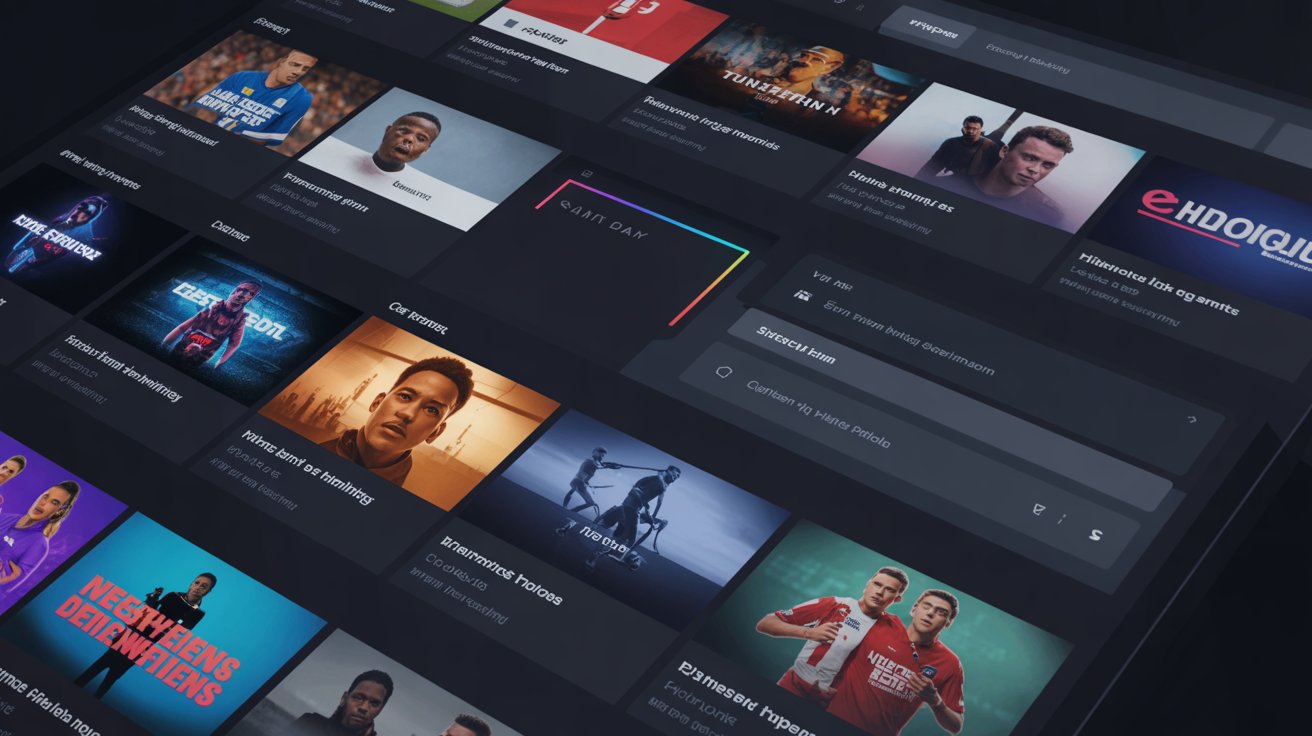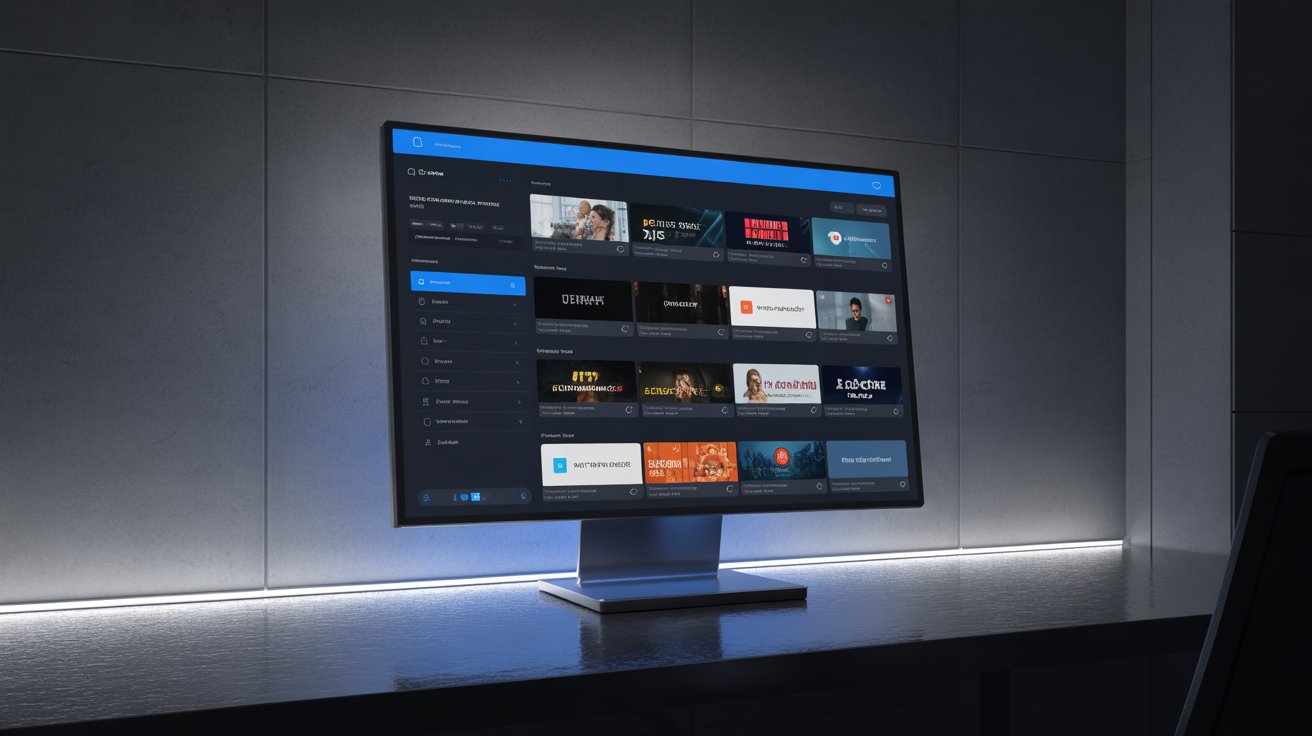Have you ever wondered why you keep hearing about the term “methatreams” when people talk about live-sports streaming sites? Maybe you’ve come across links, rumors, or warnings. In this article, I’ll walk you through what methatreams means, why it’s surfaced recently, and what you as a viewer should know. Think of it like wandering into a garage sale of free sports streaming—attractive because everything’s “free”, but you might be buying trouble without realizing it. Let’s dive in.
What is methatreams?
“Methatreams” — sometimes spelled or referenced as “methstreams” — is not a traditional or officially licensed platform, but rather a term used to describe a type of free live-sports streaming website that offers major league games (like NFL, NBA, UFC, etc.) without subscription or registration.
In other words: You visit the site, click a game, and watch without logging in or paying a fee. That’s the draw. But like a “too good to be true” sale, the fine print hides the problems.
How methatreams emerged and gained traction
With the rising cost of sports subscriptions and the desire to watch live games on any device, many viewers gravitated toward “free” streams. Sites like these stepped in and offered access to big-name leagues, often with minimal fuss: no signup, no monthly fee, just click and watch.
These platforms gained popularity for a few reasons:
-
Widespread interest in streaming live sports from mobile devices
-
People cutting the cord (cable subscriptions) and seeking alternatives
-
Frustration with regional blackouts, geo-restrictions, and high fees
-
Social sharing and word-of-mouth (someone posts “here’s the link”)
It’s like a pirate ship on the digital seas: easy to board, but you might crash into hidden reefs.
Why it appeals to viewers
Why do people even bother with methatreams-type sites? Here are a few of the attractive features:
-
Free access: No subscription or payment needed. That’s a strong pull.
-
Wide variety of sports: NFL, NBA, boxing, MMA, sometimes international leagues.
-
No account needed: Easily accessible without creating credentials or sharing personal info.
-
Flexible viewing: On computers, mobile, tablets—just an internet connection.
For fans who feel locked out by expensive subscriptions or limited local broadcasting, this seems like the golden ticket.
Legal risks and copyright concerns

Here’s where the metaphor breaks down: that golden ticket comes with a steep warning label. Using methatreams-type sites often violates copyright law because the streaming content is distributed without proper licenses.
Some of the major points:
-
The site may not have the rights to stream the event, meaning viewers are watching illegally.
-
Authorities in various countries have started cracking down—not just on operators, but also weighing consequences for viewers.
-
Potential fines, legal notices, or even criminal liability depending on region, how many streams, how much money’s involved.
So yes: that “free” stream might come at a cost you didn’t anticipate.
Technical and security hazards
Beyond legality, there are real practical risks. A site like methatreams often comes with hazards such as:
-
Malware, pop-ups, redirect ads: Many of these free streaming sites rely on ad revenue and can expose you to malicious files.
-
Unstable links / broken streams: The stream may cut out or disappear because operators often move domains, change servers.
-
Lack of quality or buffering: These sites lack the infrastructure and rights that legal platforms have.
-
Privacy risks: You may unknowingly install harmful software or grant permissions.
-
Mirror sites / copycats: After a main domain shuts down, you may find “look-alikes” that are even more dangerous.
Imagine walking into a bargain basement labeled “free TV” but most of the sets are duds, some shock you with bad wiring. That’s the risk here.
Ethical considerations for fans and creators
It’s easy to feel like “well, I’m just watching, it doesn’t hurt anyone”. But there are broader implications:
-
When you watch un-licensed streams, you’re indirectly contributing to a system that undercuts the legitimate rights holders—broadcasters, leagues, players.
-
It reduces revenue flowing back into the sport industry, which may affect smaller teams or leagues.
-
There’s also the fairness aspect: if everyone’s streaming for free, how does the business model sustain?
-
On the flip side, one might argue fairness: if official access is absurdly expensive or blocked in your region, is it ethical to be denied? That debate exists, but it doesn’t change the legal reality.
So while the temptation is understandable, consider the ripple effects.
What happened in the 2024-25 takedown wave
In late 2024 and into 2025, several high-profile illegal streaming platforms, including sites associated with methatreams-type models, were shut down. For instance, one report states that the original “methstreams” platform was taken down on December 30, 2024.
Key takeaways:
-
Shutdowns are real and may affect mirror sites or domains you think are safe.
-
Law enforcement and industry groups (e.g., the Alliance for Creativity and Entertainment) are increasingly active against piracy.
-
Users who were relying on the “free stream” found themselves without access—and potentially exposed to other dangers.
If you were using one of these sites and suddenly lost access or found a new domain, that’s likely why.
Safe and legal alternatives to methatreams

The good news? There are plenty of legitimate, safe ways to enjoy live sports and streaming without risking legal trouble or malware. Some features to look for:
-
Licensed streaming services (e.g., platforms with broadcast rights).
-
Free tiers or ad-supported legal platforms.
-
Regional broadcast apps or network apps that are authorized.
Here are some examples:
-
Subscriptions like ESPN+, DAZN, or FuboTV offer extensive sports coverage.
-
Free, legal streaming: network websites/apps that broadcast games with permission, sometimes with ads.
-
Viewing local or international games via rights-holding cable or streaming providers.
Spending a little money or choosing a verified service means peace of mind.
How to protect yourself as a viewer
If you’re streaming, whether through paid or free sources, here are practical tips to stay safe:
-
Use official apps or websites when possible.
-
If you do explore free sites, never provide personal information or payment details.
-
Use a robust ad-blocker and keep your antivirus software updated.
-
Avoid clicking “download” buttons unless you’re sure.
-
Be wary of mirror domains with strange URLs.
-
If you’re uncertain about legality in your region, consult local laws or choose licensed services.
Think of it like driving a car: you can take shortcuts, but they might be unpaved, risky, and ultimately more expensive.
What the future holds for free streaming and platforms
The streaming landscape is evolving. Here are some trends and what to expect going forward:
-
Rights holders and leagues will continue to tighten enforcement of un-licensed streaming sites.
-
More legal services will emerge, with diversified pricing and global access to reduce the “piracy appeal”.
-
Technology such as VR, AR or immersive viewing may become more accessible, making the legitimate experience richer.
-
Free-ad supported streaming (F-A-S) models may expand, giving viewers legal zero-cost options (with ads).
-
For platforms like methatreams, the margin for safe use is shrinking, making the risk higher relative to benefit.
In short: The tide is shifting toward a more structured streaming market—soaking wet pirates may find the boat sinking.
Summary and key takeaways

Let’s bring it together:
-
Methatreams (and its variants) refers to free, no-signup, live sports streaming sites that bypass rights.
-
It appeals to viewers because it seems simple and free.
-
But it carries legal risks, security threats, and ethical issues.
-
Many such sites have been shut down or heavily cracked down on in recent years.
-
There are safe and legal alternatives that cost less than you might think.
-
As a viewer, protecting your device, your data, and your conscience matters.
-
The streaming future is trending toward more accessible legal options and better user experience.
If you’re a sports fan, you do deserve delivering the game—just make sure you’re not paying in hidden ways.
FAQs
Q 1: Is using methatreams illegal?
Yes—for most countries, using a site that streams sports without proper licensing violates copyright law and can lead to fines, legal action, or other repercussions.
Q 2: Can I get in trouble just for watching, not sharing the stream?
Potentially yes. While many enforcement efforts target site operators, users can also face consequences depending on local laws and circumstances.
Q 3: Are there truly free, legal streaming options for sports?
Yes. Some legitimate services and network apps offer live sports free with ads, or you can find paid services that cost much less than you’d imagine. Checking your region’s rights helps.
Q 4: How do I know if a streaming site is safe?
Check if the site has proper licensing rights (often shown in the footer), watch for excessive pop-ups or downloads, use antivirus, and avoid sites that sound too good to be true. Use trusted services when in doubt.
Q 5: What should I do if one of these free streaming sites stops working or changes domain?
Assume it was never legitimate. Mirror domains often mean the platform is operating in a grey or illegal zone. Switch to legal alternatives and ensure your device is secure (ad-blocker, antivirus scan).
Conclusion
Watching live sports should feel exciting and worry-free—not like stepping into a minefield. While the lure of “free” streaming via methatreams-type links is strong, the hidden costs—in legality, security and reliability—can far outweigh the savings. By choosing legal, verified platforms you’ll enjoy the game with a clear conscience and a safer system. It’s like buying the ticket rather than sneaking in through the back door—yes, it costs a little more, but you avoid all the worry of getting caught, fined, or exposed to danger.








